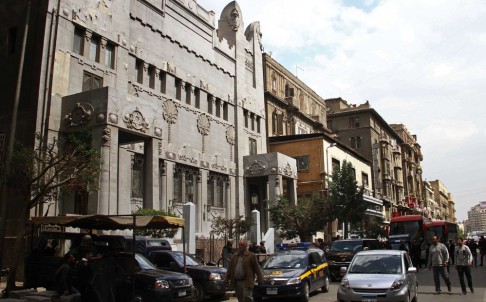Doctor to stand trial over female circumcision in first for Egypt
Doctor and father of the 13-year-old will face court in a first for Egypt
PUBLISHED : Monday, 17 March, 2014, 5:31am
UPDATED : Monday, 17 March, 2014, 5:51am
The Guardian in Cairo

According to Unicef, 91 per cent of married Egyptian women aged between 15 and 49 years of age have been subjected to FGM.
For the first time in Egypt, a doctor will stand trial on charges of female genital mutilation, after a 13-year-old girl died following an alleged operation in his clinic last year.
In a landmark case, Raslan Fadl is the first doctor to be prosecuted for FGM in Egypt, where the practice was banned in 2008 but is still widely accepted and carried out by many doctors in private.
Sohair al-Bata'a died in Fadl's care in June 2013, and her family admitted that she had been victim to an FGM operation carried out at their request.
The case was initially dropped after an official medical report claimed that Sohair had been treated for genital warts, and that she died from an allergic reaction to penicillin.
But after a campaign by local rights groups and the international organisation Equality Now, as well as an investigation by Egypt's state-run National Population Council, the country's chief prosecutor agreed to reopen the case, leading to last week's seminal prosecution of both Fadl and Sohair's father.
"It is a very important case," said Hala Youssef, head of the National Population Council, which had pushed for the case to be reopened.
"It's the first time that somebody in Egypt will be prosecuted for this crime, and it should be a lesson for every clinician. The law is there, and it will be implemented," Youssef added.
According to Unicef, 91 per cent of married Egyptian women aged between 15 and 49 years of age have been subjected to FGM, 72 per cent of them by doctors. Unicef research suggests that support for the practice is gradually falling: 63 per cent of women in the same age bracket supported it in 2008, compared with 82 per cent in 1995. According to research, FGM still has high support in areas with a lower standard of education, where proponents claim mutilation makes women less likely to commit adultery.
Sohair's family are reported to oppose her father's prosecution. "It's a cultural problem, not religious," said Vivian Foad, an official who led the National Population Council's investigation. "Both Muslims and Christians do it. They believe it protects a woman's chastity."
Some Islamic fundamentalists claim FGM is a religious duty, but it is not nearly as widespread in most other majority-Muslim countries in the Middle East.
Suad Abu-Dayyeh, Equality Now's regional representative, said: "It's very much rooted in Egypt but in other Arab countries - in Jordan, in Palestine, in Syria - we don't have it."
